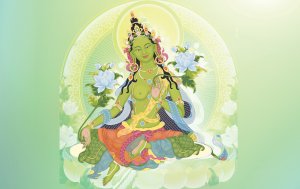This review may contain spoilers
You just need closure
The Long Season tt’s a simple drama with layered commentary—contradictory as it sounds—masterfully told by the director Bob Xin and crew, where everything slowly falls into place as the episodes progress. Also, do your appreciation of the beauty it carries, like a musical piece that builds in crescendo until it reaches its climax and then ends on a quiet but resonant note (The music analogy isn’t out of place here, as the soundtrack is an essential part of the storytelling and the final outcome).
The drama may seem slow at first, but you can’t stop watching as each episode passes: every frame has weight, every detail matters, even when it feels like “nothing” is happening. One of those rare cases where I stayed for the complete intro and ending credits till the very end: you don’t want to rush into it, and you don’t want to rush out either. You could say the director managed to immerse you in the same limbo that seems to envelop the characters.
It’s hard to classify The Long Season: it’s a murder mystery, a human study, a social commentary, a tragedy. In that sense, the three-minute sequence at the end of episode 10 is fantastic: the inexorable events tied together by fate and unleashed by a finger’s snap somewhere unknown—as in the poem—like the running waters of the great river of life that we can’t escape.
The murder aftermath and the conflict in the fabric feel like a small-scale life approach mixed with social commentary: while the Reform in China was necessary for a brighter future of the nation and its people, it didn’t come without cost or collateral damage. The old productive model, the old social structure, collapsed and hit harder in some areas—especially in two generations: the middle-aged, who saw their once secure future crumble and were left with nothing but broken dreams, and the young, who simply didn’t have or see a clear future at all.
Among the latter, the most painful case is Wang Yang, as he was the only one who had figured out what he really wanted in life during those complex and chaotic times. He had talent, the means, and the courage to make their dreams real. He was a bright soul, unmatched by the hardships of life, unlike the rest. That’s the greatest tragedy.
It makes you question: is your fate decided? And by whom? Do your choices and beliefs really matter and have impact? And if so, to what extent? On one hand, the answer might seem yes; on the other, no. In the end, perhaps a mix of both? It’s about the tragedy of the characters, but also their role within those times of change, all intertwined and shown with the utmost artistic sensitivity.
Perhaps just live your life and do what you can with what is given? Life is like a melody, with its own story, logic, and parts, and we are just another element—important to the whole, but not so important as to stand as a single note no matter what we wish for. And here we are again questioning whether life is a dream and, if so, what’s the point... a recurrent theme in Chinese filmography that I personally love.
The three old men are, in this sense, three losers at different levels. Not only because they couldn’t keep up with society but mostly because they couldn’t keep up with their own expectations, for different reasons: a personal tragedy, a bad decision, no tools for adaptation. The sense of being outcasts and the weight of lost opportunities float throughout the whole drama. This middle-aged generation in the 90s was struck by the economic Reform and had the second half of the life they thought already secured taken away. They were left in limbo while the rest of the country, society, and the next generations thrived. They were the collateral damage for the brighter future.
But then, Wang Xiang isn’t a loser. He just needed closure for the tragedy that hit his life at the same moment the country shook off the old economic model. Despite enduring the harshest hardships, he rose wiser and stronger. He embraced another life and new opportunities in Yang Bei, the youngest generation with future). His Long Season ended with the revelation of the truth.
For me, what makes The Long Season so powerful is how it blends the personal (Wang Xiang’s tragedy and search for closure) with the generational (a middle-aged group left in limbo after the economic reforms) issues. All together with a superb script, direction, soundtrack, storytelling, and acting from the whole cast.
It just life, the circle of life.
And in this regard, the final message reminds me of how One Hundred Years of Solitude, by Gabriel García Márquez, closes, and what the author said many years later about that final paragraph:
“Before reaching the final line, however, he had already understood that he would never leave that room, for it was foreseen that the city of mirrors (or mirages) would be wiped out by the wind and exiled from the memory of men at the precise moment when Aureliano Babilonia would finish deciphering the parchments, and that everything written on them was unrepeatable since time immemorial and forever more, because races condemned to one hundred years of solitude did not have a second opportunity on earth.”
The older García Márquez changed his mind: he realized—and believed—that people do deserve and have a second chance on earth. So it seems with the director of The Long Season.
The drama may seem slow at first, but you can’t stop watching as each episode passes: every frame has weight, every detail matters, even when it feels like “nothing” is happening. One of those rare cases where I stayed for the complete intro and ending credits till the very end: you don’t want to rush into it, and you don’t want to rush out either. You could say the director managed to immerse you in the same limbo that seems to envelop the characters.
It’s hard to classify The Long Season: it’s a murder mystery, a human study, a social commentary, a tragedy. In that sense, the three-minute sequence at the end of episode 10 is fantastic: the inexorable events tied together by fate and unleashed by a finger’s snap somewhere unknown—as in the poem—like the running waters of the great river of life that we can’t escape.
The murder aftermath and the conflict in the fabric feel like a small-scale life approach mixed with social commentary: while the Reform in China was necessary for a brighter future of the nation and its people, it didn’t come without cost or collateral damage. The old productive model, the old social structure, collapsed and hit harder in some areas—especially in two generations: the middle-aged, who saw their once secure future crumble and were left with nothing but broken dreams, and the young, who simply didn’t have or see a clear future at all.
Among the latter, the most painful case is Wang Yang, as he was the only one who had figured out what he really wanted in life during those complex and chaotic times. He had talent, the means, and the courage to make their dreams real. He was a bright soul, unmatched by the hardships of life, unlike the rest. That’s the greatest tragedy.
It makes you question: is your fate decided? And by whom? Do your choices and beliefs really matter and have impact? And if so, to what extent? On one hand, the answer might seem yes; on the other, no. In the end, perhaps a mix of both? It’s about the tragedy of the characters, but also their role within those times of change, all intertwined and shown with the utmost artistic sensitivity.
Perhaps just live your life and do what you can with what is given? Life is like a melody, with its own story, logic, and parts, and we are just another element—important to the whole, but not so important as to stand as a single note no matter what we wish for. And here we are again questioning whether life is a dream and, if so, what’s the point... a recurrent theme in Chinese filmography that I personally love.
The three old men are, in this sense, three losers at different levels. Not only because they couldn’t keep up with society but mostly because they couldn’t keep up with their own expectations, for different reasons: a personal tragedy, a bad decision, no tools for adaptation. The sense of being outcasts and the weight of lost opportunities float throughout the whole drama. This middle-aged generation in the 90s was struck by the economic Reform and had the second half of the life they thought already secured taken away. They were left in limbo while the rest of the country, society, and the next generations thrived. They were the collateral damage for the brighter future.
But then, Wang Xiang isn’t a loser. He just needed closure for the tragedy that hit his life at the same moment the country shook off the old economic model. Despite enduring the harshest hardships, he rose wiser and stronger. He embraced another life and new opportunities in Yang Bei, the youngest generation with future). His Long Season ended with the revelation of the truth.
For me, what makes The Long Season so powerful is how it blends the personal (Wang Xiang’s tragedy and search for closure) with the generational (a middle-aged group left in limbo after the economic reforms) issues. All together with a superb script, direction, soundtrack, storytelling, and acting from the whole cast.
It just life, the circle of life.
And in this regard, the final message reminds me of how One Hundred Years of Solitude, by Gabriel García Márquez, closes, and what the author said many years later about that final paragraph:
“Before reaching the final line, however, he had already understood that he would never leave that room, for it was foreseen that the city of mirrors (or mirages) would be wiped out by the wind and exiled from the memory of men at the precise moment when Aureliano Babilonia would finish deciphering the parchments, and that everything written on them was unrepeatable since time immemorial and forever more, because races condemned to one hundred years of solitude did not have a second opportunity on earth.”
The older García Márquez changed his mind: he realized—and believed—that people do deserve and have a second chance on earth. So it seems with the director of The Long Season.
Was this review helpful to you?


 1
1 2
2 1
1







